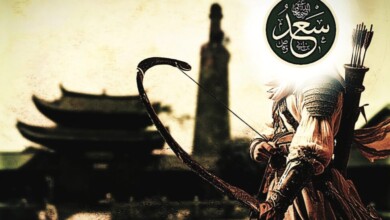Maria al-Qibtiyya: Mother of the faithful
Mariah al-Qibtiyyah was one of the wives of the Prophet Muhammad (peace be upon him). She was the only wife who became pregnant by him af-ter Khadijah. She was the mother of Ibrahim, the son of the Prophet (PBUH) who was born in Madinah.
She was born in Egypt around the 7th century when the region was un-der Byzantine rule. She was of Coptic Christian background, and her name, “al-Qibtiyya,” refers to this heritage, as “Qibt” – the Arabic term for Copts, the native Egyptian Christians.
Maria al-Qibtiyya belonged to a wealthy family and was the daughter of an Egyptian man and a Greek woman who resided in Egypt. She was given to the court of Muqawqis – who was the ruler of Egypt at the time.
Her introduction to Islamic history oc-curred after the signing of the Treaty of Hudaibiyah when Prophet Muham-mad began corresponding with the rul-ers of various empires, inviting them to Islam and seeking peaceful relations.
One such letter was sent to al-Muqa-wqis, the Byzantine governor of Egypt. While al-Muqawqis did not convert to Islam, he responded courteously by sending diplomatic gifts to the Proph-et, including two female slaves—Ma-ria and her sister Sirin—along with a mule, a donkey, and some garments.
On the way back to Madinah, Hatib bin Abi convinced the two slave girls – Maria al-Qibtiyya and her sister Si-rin – to accept Islam and upon their arrival, they formally came under the fold of the religion of Islam. When the slave girls were presented to the Holy Prophet (PBUH), he decided to marry Maria al-Qibtiyya and gave her sister (Sirin) to Hassan bin Thabit.
Maria al-Qibtiyya was almost 20 years old when she came to Madina with the delegation in 628 AD. She was known to be a beautiful, kind-hearted and char-itable woman who stayed loyal to the Holy Prophet (PBUH) even after his de-mise – as she did not marry ever again.
Unlike the other wives of the Prophet (PBUH) who lived around the mosque, the Holy Prophet (PBUH) gave Maria al-Qibtiyya a residence in the outskirts of Madina which is known to us today as Mashrabat Umm Ibrahim.
By the grace of Allah Almighty, Maria al-Qibtiyya gave birth to a beautiful baby boy after her marriage to the Holy Prophet (PBUH) in 8 Hijri. The Prophet (PBUH) was overjoyed by the birth of his son and named him Ibrahim.
The birth of Ibrahim was celebrated by distributing grain to the poor and needy of Madinah. The Holy Proph-et (PBUH) visited Maria al-Qibtiyya’s home every day after the birth of his son, caring for him and showing him the love of a devoted father. Howev-er, the joy of Ibrahim’s birth was short-lived as he (Ibrahim) soon fell serious-ly ill and eventually died.
After Ibrahim’s death, some non-believ-ers began to mock the Prophet (PBUH), claiming that Allah had cut him off and that he had no male heir to carry on his lineage. The Holy Prophet (PBUH) was deeply saddened by these words.
In response, Allah Almighty revealed Surat al-Kawthar (The Abundance) to comfort the grieving Prophet (PBUH):
“Indeed, We have granted you, [O Mu-hammad], al-Kawthar. So pray to your Lord and sacrifice [to Him alone]. In-deed, your enemy is the one cut off”
(Quran 108:1–3).
Maria al-Qibtiyya was an honourable and respectable woman who only spent three years of her life with the Holy Prophet (PBUH). After she had lost the two most important people in her life, Maria al-Qibtiyya bound her-self to her house. In the five years that she outlived the Prophet (PBUH), she only went out to visit the grave of her beloved son or her husband. She died in 16 AH and her funeral prayers were led by Umar bin Khattab and was burried.


